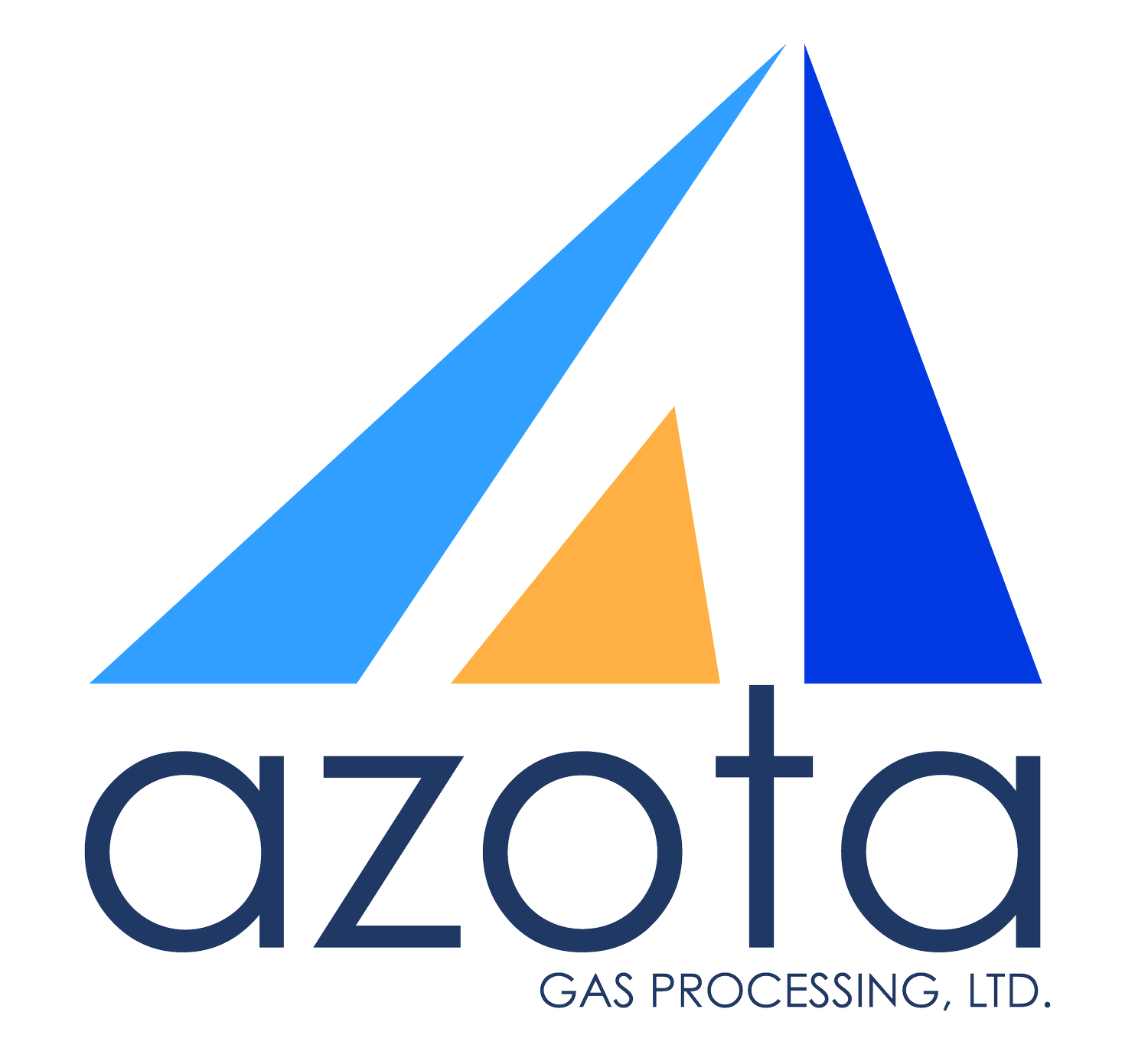Gas Dehydration
Headquartered in Houston, Texas
The drying of natural gas dates back to the early 1900s, with glycols, particularly Triethylene Glycol (TEG), becoming the standard solvent for achieving low water dewpoints in gas pipelines. Simple TEG units typically maintain dewpoints of 7 to 11 lbs/MMSCFD and operate efficiently without constant supervision. However, for gas destined for gas liquids recovery plants requiring even lower dewpoints, molecular sieves are often employed. Azota specializes in designing molecular sieve dehydration systems for cryogenic gas plants, offering solutions for very low dewpoint gas plant requirements and pipeline scenarios with sub-zero temperatures.
Azota’s TEG Plants
Azota designs and builds TEG units for larger applications and for applications which require very low dewpoints. Typical one or two gpm field units are usually a catalog item which are readily available either on the used or new market. Our concentration is in 20 gpm and 40 gpm units designed for 50 to 300 MMSCFD gas processing plants. Our standard TEG dehydration units are all capable of reaching less than 7 #/MMSCFD levels and with some modifications may achieve even cryogenic temperature levels. These plants all include Stahl columns for deep TEG stripping if required since the Stahl stripper uses stripping gas much more efficiently than simply injecting the gas in the reboiler. Of course BTEX removal and recovery is also a standard part of our units.
We would be remiss if we did not brag a bit here. In 1986 we built our first turboexpander plant which used no molecular sieve system at all but instead used a Stahl stripper type TEG regeneration system which has continued to be our standard for large TEG units. This system worked so well that not only was inlet gas water removed but also the entirety of the contained methanol. A separate methanol recovery tank was profitably installed on the TEG overhead system!
We have proposed the use of low dewpoint recovery systems on gas gathering system so eliminate the costly expense of continuous methanol injection. The cost/benefit analysis is clear however the application awaits the savvy customer!
Molecular Sieve Dehydration
Molecular Sieve is the tried and true solution to most deep cryogenic gas plant dehydration applications. These systems are robust and easily operated either remotely or in manned gas plant applications. We have designed one, two, three and four bed systems. As with all gas processing applications Azota has engineered some attractive energy saving variants on the typical molecular sieve system.
Future innovations
There are several other developments in Azota’s gas dehydration design portfolio that we will be announcing shortly. Our Pressure Swing Adsorption technology, first designed for hydrogen purification and air drying is currently being pilot plant tested for natural gas applications. Such a system would be heatless, able to reach extremely low (less than 1#/MMSCFD) water dewpoints and useful for wellhead gathering systems. Look here for further developments!

